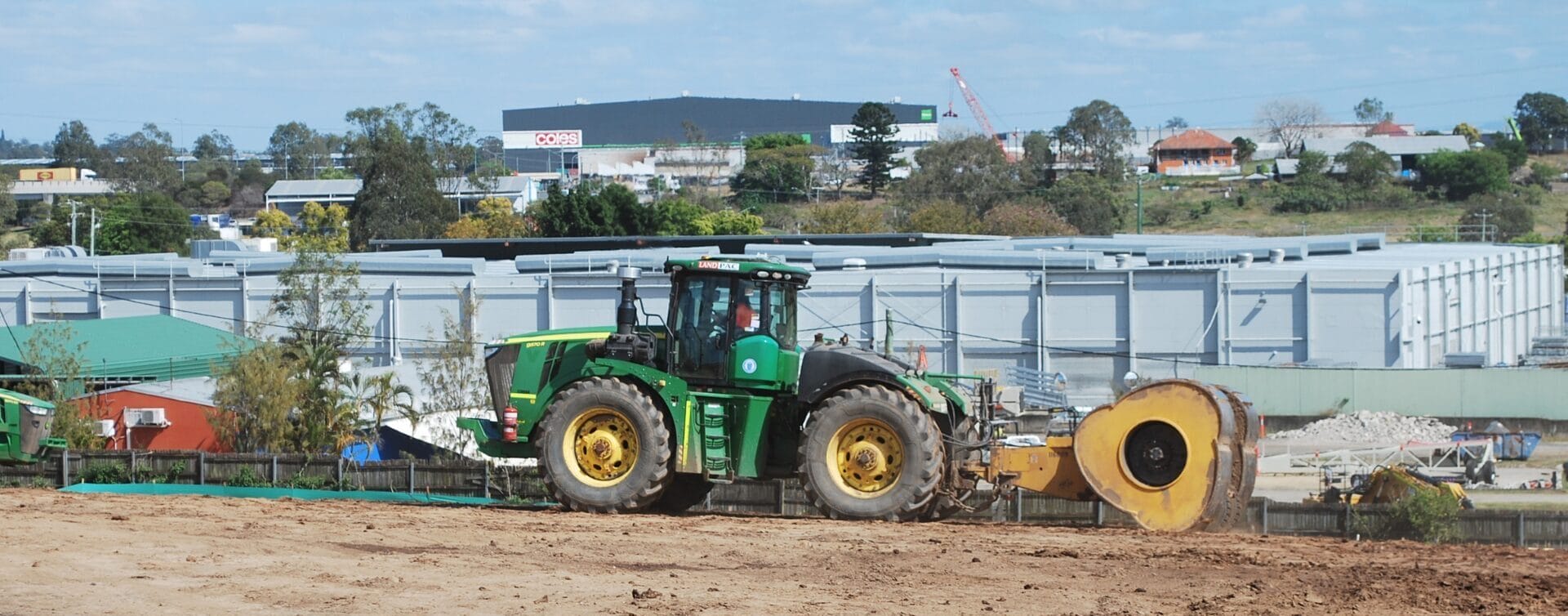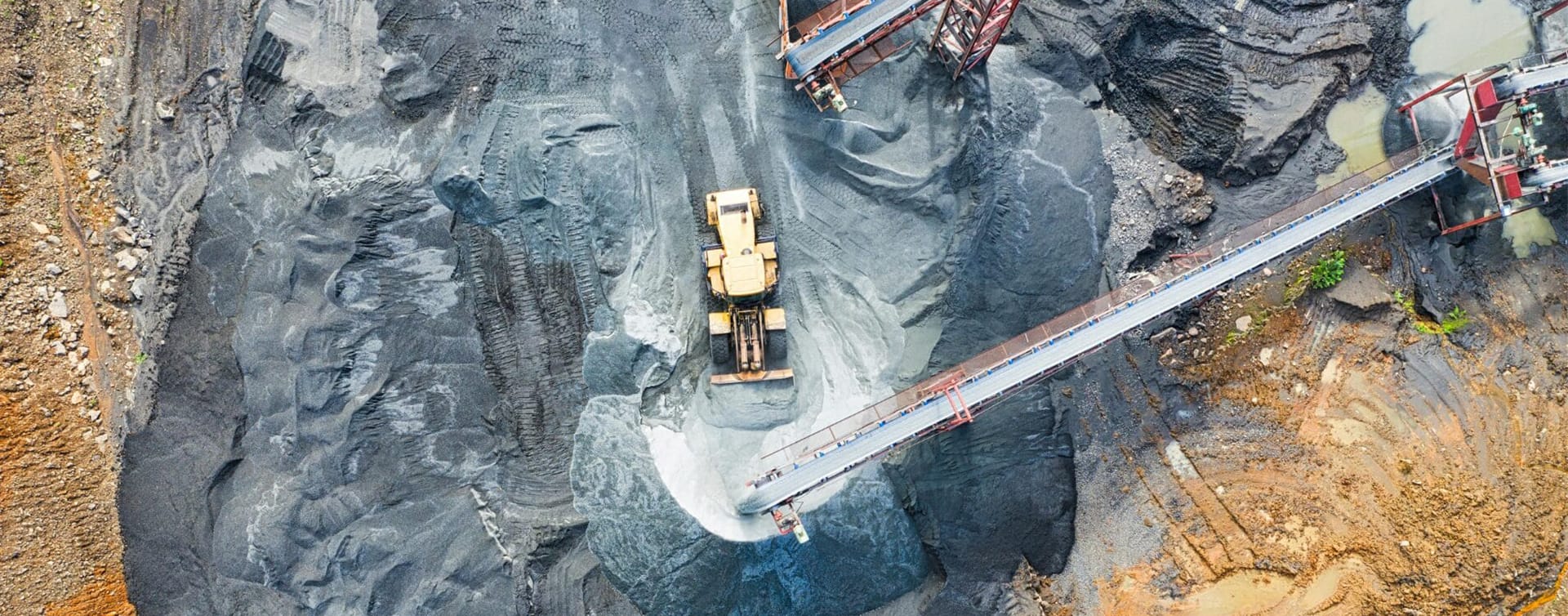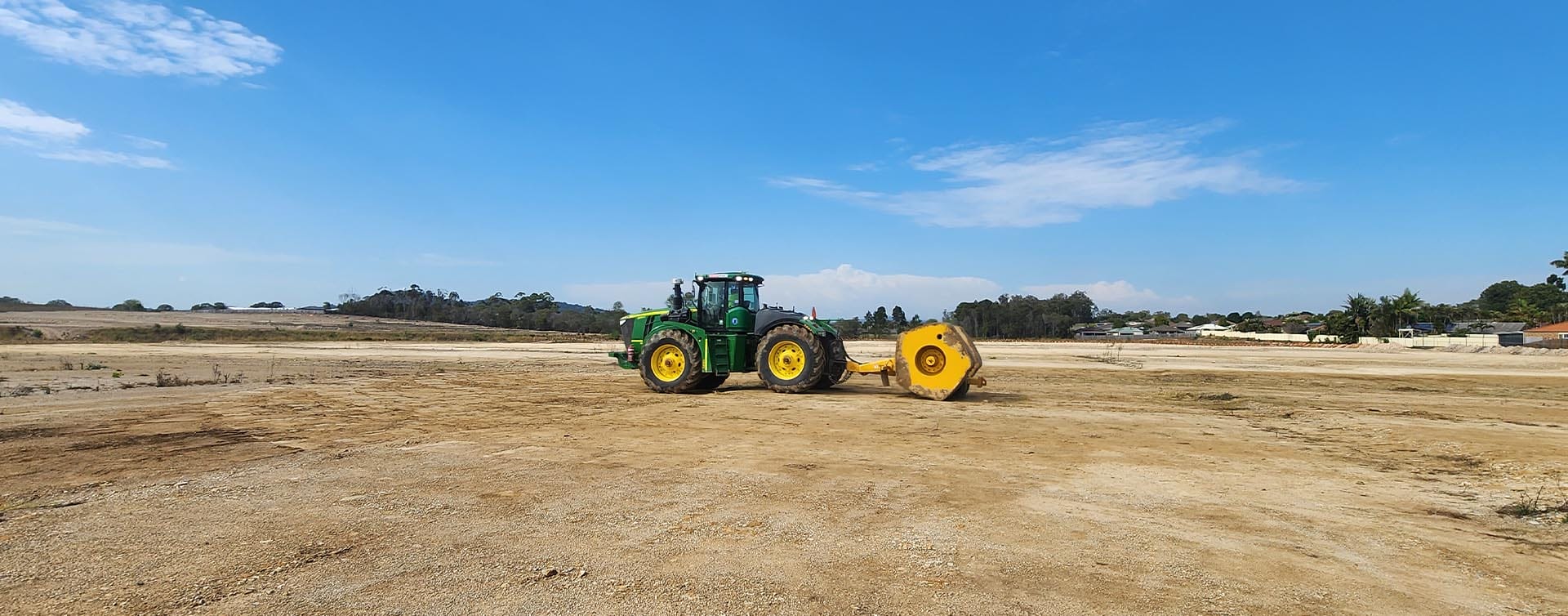Shaping a Sustainable Energy Future
Landpac's Role in Shaping a Sustainable Energy Future
The Australian energy industry, a critical component of the nation’s economic engine, is on the cusp of transformation. With activities spanning the generation, distribution, and supply of electricity and gas, the industry has long been anchored by coal-fired power stations. However, a seismic shift is underway as renewable energy sources begin to carve out a sizeable segment of the energy supply, heralding a new era of clean, sustainable power.

Landpac's Contribution to Energy Infrastructure
In this changing landscape, Landpac’s services become increasingly vital. The construction and maintenance of energy infrastructure – from traditional power plants to innovative renewable energy farms – demand robust foundations that can withstand the test of time and the elements. High Energy Impact Compaction (HEIC) is the technique at Landpac’s disposal, enhancing the ground’s physical properties to meet the stringent demands of the energy sector.
Supporting Traditional Energy Sources
While coal remains a significant part of the energy mix, the infrastructure required for its generation must be reliable and safe. Landpac’s HEIC ensures that the foundations for these facilities are capable of supporting the heavy loads and high traffic inherent to such operations, thereby extending their service life and ensuring operational integrity.
Enhancing Distribution Networks
The distribution and supply networks that deliver energy to end-users also benefit from Landpac’s expertise. HEIC is used to prepare the land for the construction of substations, transmission towers, and pipeline corridors, ensuring that the energy generated is efficiently and safely transported across the nation.
Driving Efficiency and Sustainability
Landpac’s HEIC not only offers superior compaction and stability but also delivers these benefits more efficiently than traditional methods. By compacting larger areas to greater depths with fewer passes, HEIC reduces construction time and costs, contributing to the economic viability of energy projects. Moreover, by ensuring the longevity and integrity of energy infrastructures, Landpac helps minimise the environmental impact associated with frequent repairs and rebuilds.
Powering Progress with Precision
The Australian energy industry’s evolution is a testament to the country’s commitment to sustainability and innovation. As this sector grows and diversifies, Landpac’s HEIC stands as a critical ally, offering the ground stability and strength necessary for both traditional and renewable energy infrastructures. Through its advanced compaction techniques, Landpac is not just participating in the energy sector; it is actively shaping the foundations of Australia’s energy future, ensuring that it is built on solid ground.
Comprehensive compaction for any site or soil type
No need to cart in additional soil. Get the job done with what’s onsite. High Energy Impact Compaction (HEIC) can stabilise base materials to a depth of five-metres and our team can advise on solutions for difficult sites. Get in touch to find out more.
Latest news

Uncontrolled vs Contaminated Fill | Why It Matters
Understand the difference between uncontrolled and contaminated fill, the risks of each, and how Landpac’s HEIC method delivers safe, stable ground.

High-Energy Impact Compaction in Australian Mining
From haul roads in WA to tailings dams in QLD, High-Energy Impact Compaction (HEIC) is reshaping ground improvement across Australia’s mining operations. Backed by Intelligent Compaction Measurement (ICM), HEIC delivers faster, deeper, and more reliable results, boosting safety, sustainability, and cost-efficiency in some of mining’s toughest conditions.

Understanding High Energy Impact Compaction (HEIC)
High Energy Impact Compaction (HEIC) revolutionises ground improvement with its ability to achieve superior soil density and stability. Unlike traditional methods, HEIC uses advanced rollers and compaction technology to penetrate deeper soil layers.
